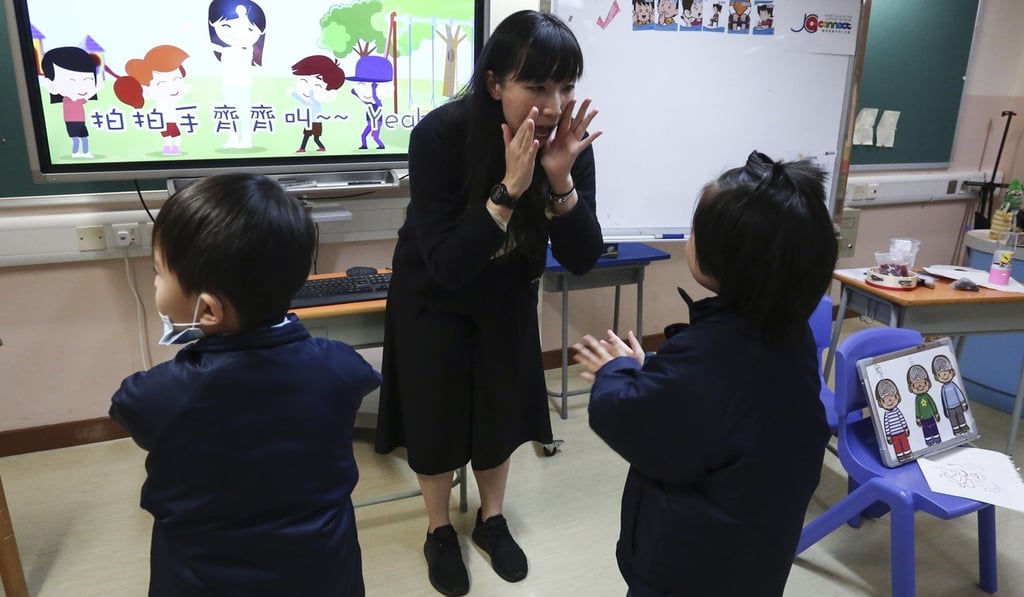The community programme coaching autistic pupils, their parents and teachers at mainstream Hong Kong schools
- Number of pupils with autism spectrum disorders in mainstream public schools is up from 2,050 in 2010 to 8,710 in 2018
- One programme is helping teachers, carers and students to adapt

Sue Tung remembered having the first heart-to-heart talk with her autistic son only when he reached eight years old, although the details of the conversation were hazy.
Tung, a yoga coach in her 40s, said her son Harris, now 13, was diagnosed with autism – a developmental disorder characterised by difficulties in social interaction and communication – at three. He used to avoid eye contact with people and would stare at one thing at a time for hours.
He could easily get upset and it was difficult to calm him down, she said. Even a small variation to routine, like a change of seat on the school bus, made him act out, sometimes inflicting bleeding wounds on himself.
Tung said she was at a loss as to what to do. Her son’s condition made her resort to alcohol and sleeping pills to soothe her nerves.

“I didn’t even know what autism was at first,” she said. “I got angry at him, and then he became more agitated. It was like a vicious circle that we were stuck in.”